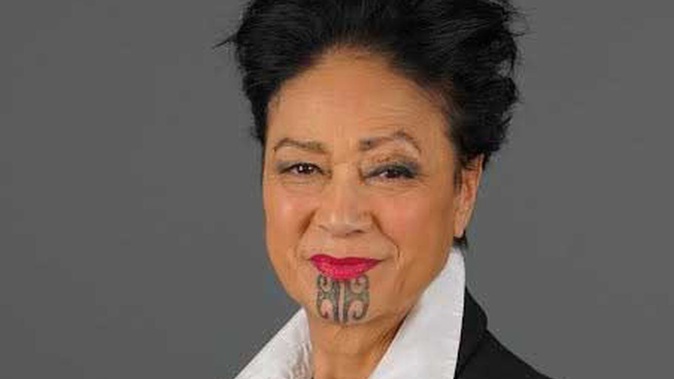

Former MP Donna Awatere Huata and her husband Wi Huata have left the Hastings property where they have been “unsatisfactory tenants” for 37 years, following a protracted legal stoush over its occupation.
A trustee for the family which owns the land says it was a “huge relief” to inspect the 17-hectare property on Saturday and find the Huatas had gone.
“It was an emotional, tearful spiritual feeling of relief, that we finally had our whenua back in our whānau,” Carol Mitchell said.
“We each said a prayer of thanks to Ihoa, plus acknowledging our tupuna who had previously served on the Mangaroa Trust battling to gain rights to get our whenua back.”
Mitchell is chairperson of the Mangaroa 26N2 Trust which administers the property on behalf of its Māori owners, descendants of a woman who owned the property a century ago.
The property had a rateable value of $2.45 million in 2022.
A High Court judgment last year, in which Awatere Huata was named as Donna Huata, determined the couple’s last lease expired in 2019, and made an order for the trust to take back possession.
But the Huatas appealed, with Wi Huata telling an online Māori news service, Waatea News, as recently as last August that he was determined not to leave.
“I don’t want to get to that stage in my life where I’ve had regrets for not fighting harder and if it means us having to invest a heck of a lot more money into this, then so be it,” he said.
“But in 10, 20, 30, 40 years’ time I still want to be able to look my mokos in the eye if we lost this land and say I did everything possible to fight for this land,” he told Waatea News.
‘Tikanga claim’ mooted
The Huatas appealed the High Court judgment, then made an application to stay their own appeal in favour of a “tikanga claim” they were planning to make to the High Court.
That application for a stay was turned down by the Court of Appeal, and the Huatas then abandoned their appeal.
The gates to the property were chained shut on Wednesday. A large shed was closed up and a dwelling house had been vacated.
It was not immediately known where the Huatas have gone. An approach to them for comment has been made through their lawyer.
The Huatas have occupied the land since 1987 and have been in dispute with their landlords over various matters for much of that time.
According to the 2022 High Court judgment, one of several resulting from the legal disputes in the case, the trust alleged the Huatas “have not paid their rent on time and have always been unsatisfactory tenants”.
But an agreed statement of facts between the parties states that the Huatas tried to buy the land several times over the years.
The Huatas had also placed buildings on the propery and developed the land. The trustees refused to compensate them for this.
At various times they also used the property for pig farming, orcharding and a kohanga reo, but more recently most of it has been sub-leased to a farmer to grow lucerne for stock feed.
The rural property near Bridge Pa was bought by Miriama Te Whare in 1909 and is classed as general land owned by Māori. Legally, it is not considered Māori land.
The Mangaroa 26N2 Trust was set up under the Māori Affairs Act in 1974 to administer the land for Miriama Te Whare’s descendants.
The trustees have said they want to use the land for housing for the whānau.
/cloudfront-ap-southeast-2.images.arcpublishing.com/nzme/BJYTHLKBGAMZTNEE5VJPOEEG54.jpg)
Donna and Wi Huata, photographed in 2006. Photo / NZME
“Our whānau can now move forward planning what are the best options of the whenua for the future of our mokopuna, who rightfully whakapapa to her [Mirama Te Whare’s] whenua,” Mitchell said.
Before being elected an MP, Awatere Huata was a high-profile Māori activist and a founding member of the group Nga Tamatoa, which promoted Māori rights and fought racial discrimination.
Awatere Huata entered Parliament in 1996 with the Act party, but was expelled in 2003 when fraud allegations emerged, prompting a long legal battle about whether she could stay on as an independent MP.
Awatere Huata was found guilty of fraud in 2005 and was sentenced to two years and nine months in jail.
She and Wi Huata were found to have taken $80,000 from a state-funded trust she founded to improve literacy among underprivileged Māori children.
Ric Stevens spent many years working for the former New Zealand Press Association news agency, including as a political reporter at Parliament, before holding senior positions at various daily newspapers. He joined NZME’s Open Justice team in 2022 and is based in Hawke’s Bay.

Take your Radio, Podcasts and Music with you









